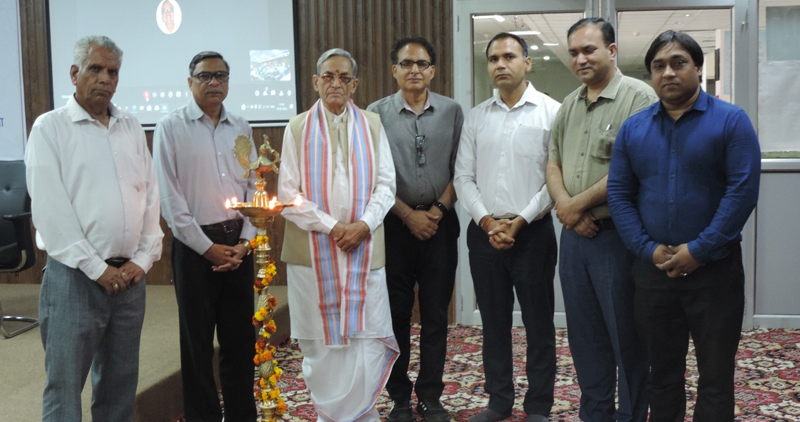Excelsior Correspondent
JAMMU, Mar 24: Under the joint aegis of Department of Hindi and Other Indian Languages, Central University of Jammu and Kendriya Hindi Sansthan, Agra, a two-day national seminar began here today.
Theme of the seminar is ‘Hindi literature in Jammu and Kashmir and Hindi language in Jammu and Kashmir’. This seminar is divided into four sessions.
Prof Devanand Padha of CUJ presided over the first session and spoke about the development of Sharda script.
Dean, Indian Institute of Mass Communication, New Delhi Prof Govind Singh said that to promote Hindi in Jammu and Kashmir we have to stress on the need to take the local languages here along.
Dilip Kumar Dubey, a scholar and advocate of Jammu and Kashmir, spoke about the scope of Hindi language.
Padmashree Acharya Vishwamurti Shastri, who was chief guest on the occasion, emphasized the necessity of Hindi Academy in every province.
Ashutosh Bhatnagar, Director, Center for Studies in Ladakh and Jammu and Kashmir, said that Hindi should be made compulsory as a working language in Jammu and Kashmir as well as in whole of India.
Seminar-convenor and head of Hindi and other Indian languages Department, Prof Rasal Singh said that since ancient times, J&K has been the center of literature, meditation and learning in which the contribution of Kashmir in Sanskrit literature and Hindi literature has been unparallel.
Theme of the second session was ‘J&K’s contribution to Hindi literature’, and it was presided over by eminent Dogri and Hindi litterateur Padmashree Dr Shiv Nirmohi. He suggested the creation of a museum of the works of J&K writers in the university.
The keynote speaker was eminent Hindi litterateur Chandrakanta who drew attention towards the Bollywood movie Kashmir Files and said that it was not necessary to be displaced to write about displacement.
Prof Kripashankar Choubey of Mahatma Gandhi International University, Wardha said that like other discourses in Hindi literature, exile should also be a discourse.
Prof Niranjan Kumar of University of Delhi, explained how the abrogation of Article 370 has given the Scheduled Castes/Scheduled Tribes of Jammu and Kashmir their rights.
Aarti Devi, Krishna Mohan, R Asha, Pooja Sharma, Soumya Verma, Krishna Anurag, Priyanka Saroj, Sonu Bharti and Prabhakar Kumar presented their research papers during the session.


